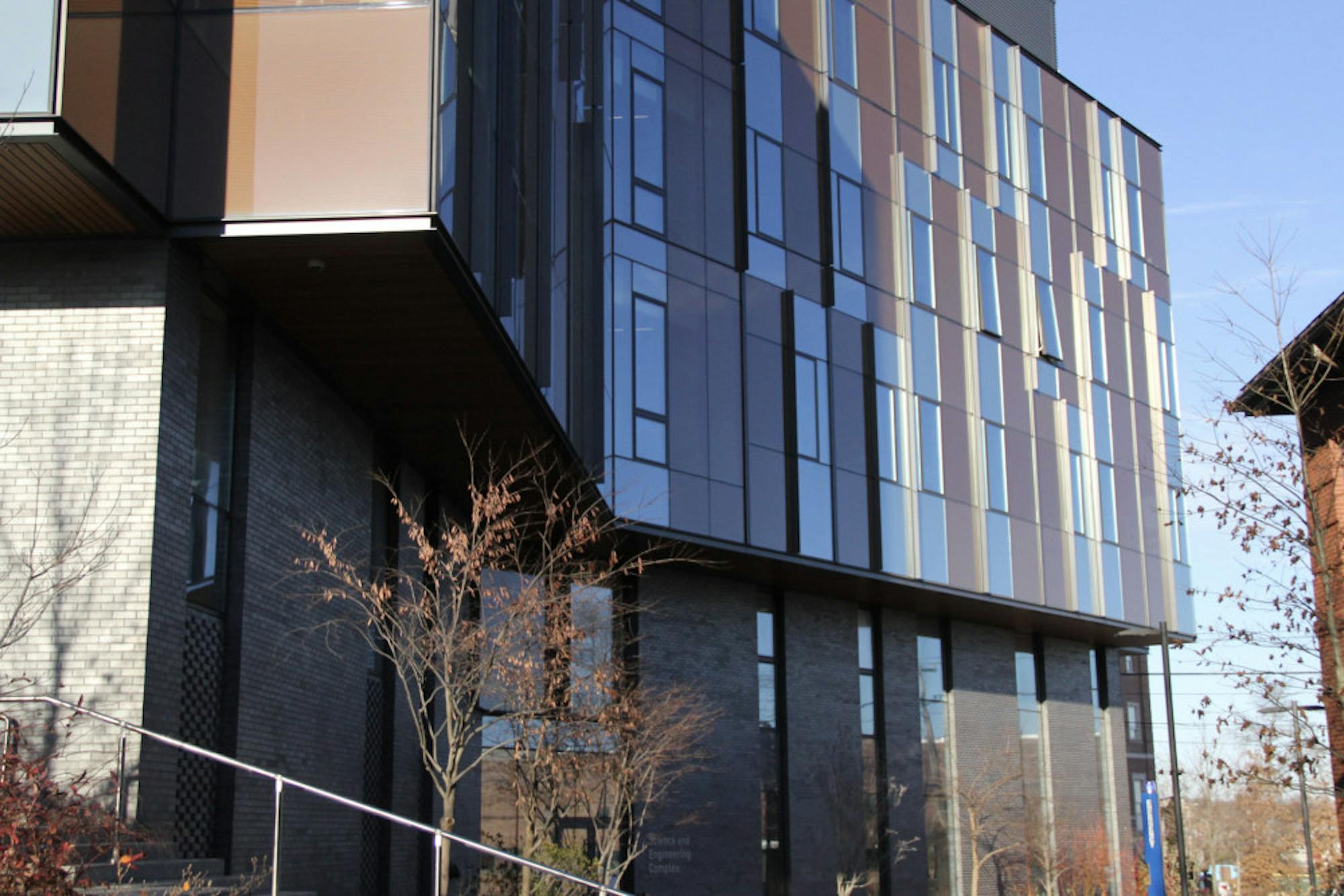The Tufts Office of Sustainabilityannounced the three winners of its annual Green Fund competition in December 2020. The winning project on the Medford/Somerville campus was Mia Nixon’s “FlowGreen at Tufts," Kevin Cody and René LaPointe Jameson won with “Tufts Hydroponics Collaboration” on the Boston Health Sciences Campus and “Disposable Mask Recycling” by Juliette Nye received the Grafton campus funding.
Tom Paugh, the Green Fund intern this past summer, explained that the Green Fund utilizes a budget that totals $40,000 to support projects envisioned by members of the Tufts community in order to spur involvement with sustainability issues across different campuses.
“Each fiscal year we have $40,000 to allocate to … student, faculty or staff projects, and the purpose of the Green Fund is to provide funding for the implementation of sustainability projects and ideas within the Tufts community and for the Tufts community,” Paugh, a sophomore, said. “It's trying to … spur student engagement in sustainable organizing, as well as making their ideas about how the campus could be more sustainable come to a reality.”
According to Paugh, the Green Fund’s selection criteria include whether the project is financially feasible and whether it can benefit the Tufts community as a whole, instead of just a smaller group of people.
Paugh added that the number of applications saw a significant drop from last year, from about30 to eight stand-alone applications this year, two of which merged into one. However, he noted that while COVID-19 presented challenges to prospective applicants, he was impressed by their dedication.
Nixon, a senior, whose idea "FlowGreen at Tufts" won for the Medford/Somerville campus, explained the thought process behind her idea. FlowGreen at Tufts, which was awarded funding totaling $3,590, will use QR code technology to make up-to-date recycling information accessible for Tufts community members. Since it’s common for people to be confused about what to recycle — because recycling rules change constantly and are different across regions — FlowGreen at Tufts will benefit the community at large.
“Starting this spring through the fall, we're going to put QR codes on all of the campus recycling bins … that anybody can just walk up to, take out their smartphone, open up their camera and scan this QR code, and it will … direct them toward local recycling guidelines and other recycling related resources,” Nixon said. “We’re directing them to theRecycle Smart MA website where you can just type in exactly what you're looking to recycle, and it'll tell you how it can be disposed of, whether it can be recycled.”
Nixon mentioned that the success of the project will be measured by the number of QR code scanned and recycling bin contamination rates. The latter variable is important because if containers are not properly cleaned before recycling, they can contaminate the rest of the items in a recycling bin, she said.
Nixon believes her project will provide community members a means to practice sustainable living.
“I really think FlowGreen … takes recycling into our own hands … instead of trying to rely on other people to make a difference, it's really giving us the opportunity to make an effort to properly dispose of our waste and make a real change,” Nixon said.
The winning project on the Boston campus was “Tufts Hydroponics Collaboration,” proposed by LaPointe Jameson, a junior, and Cody, who is the Hoch Cunningham professor of the practice in food systems in the environmental studies program. The project received $21,319.65.
Cody is the farmer training program manager at New Entry Sustainable Farming Project, and he will collaborate with two other organizations to deploy hydroponics operations to improve food security. Cody detailed specific initiatives in an email to the Daily.
"The first objective is to develop a hydroponics farm-to-school pipeline," Cody said. "This will be done with Essex Tech where they will build and operate a portion of the hydroponics equipment in an already existing greenhouse on their campus in Danvers, MA with the produce going primarily to the school cafeteria."
Cody also said that the project will aim to support food access efforts with Building Audacity, an organization that will build and operate hydroponics equipment in Lynn, Mass. in an effort to serve low-income communities of color.
He added that he also hopes to integrate the Tufts community by supporting the development of an online hydroponic farming training course, creating workshop opportunities for adult education and involving students from various environmental and nutrition fields.
Paugh commented on the potential impact of this project.
“It seeks to help low-income communities that don't necessarily have access to fresh produce,” Paugh said. “It's a direct need because hunger is big during the pandemic as well, so it's providing direct relief to low-income communities in Massachusetts and also helping teach people at Tufts hydroponic farming techniques.”
Nye, a masters in conservation medicine student at the Cummings School, explained that her project, “Disposable Mask Recycling,” which won on the Grafton campus, will implement two Terracycle ZeroWaste mask recycling boxes on the Grafton campus.
“Instead of having all of these disposable masks just thrown away in the garbage … the disposable masks that are put in our Terracycle boxes can be disassembled, sorted by material, and then made into items like floor tiles and lumber,” Nye said in an email. “The recycling boxes will not only help to divert our campus’ waste from landfills and environments where waste should not normally be found.”
Nye commended the Green Fund for the resources it provides in order for her to make positive impacts.
“The Green Fund provided both the financial and consultation resources that I knew I needed to implement this project," Nye said. "The application process forced me to think long and hard about the purpose of these boxes and how they will make an impact on the campus-level, which has helped me better explain the project and its implications to all stakeholders."






